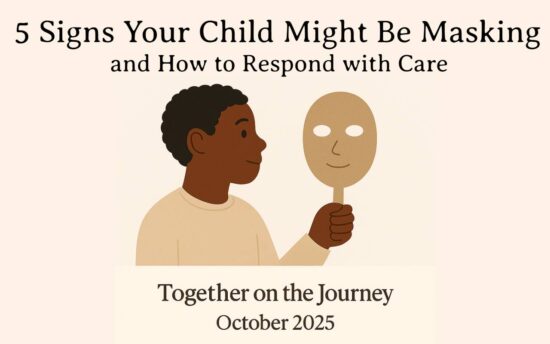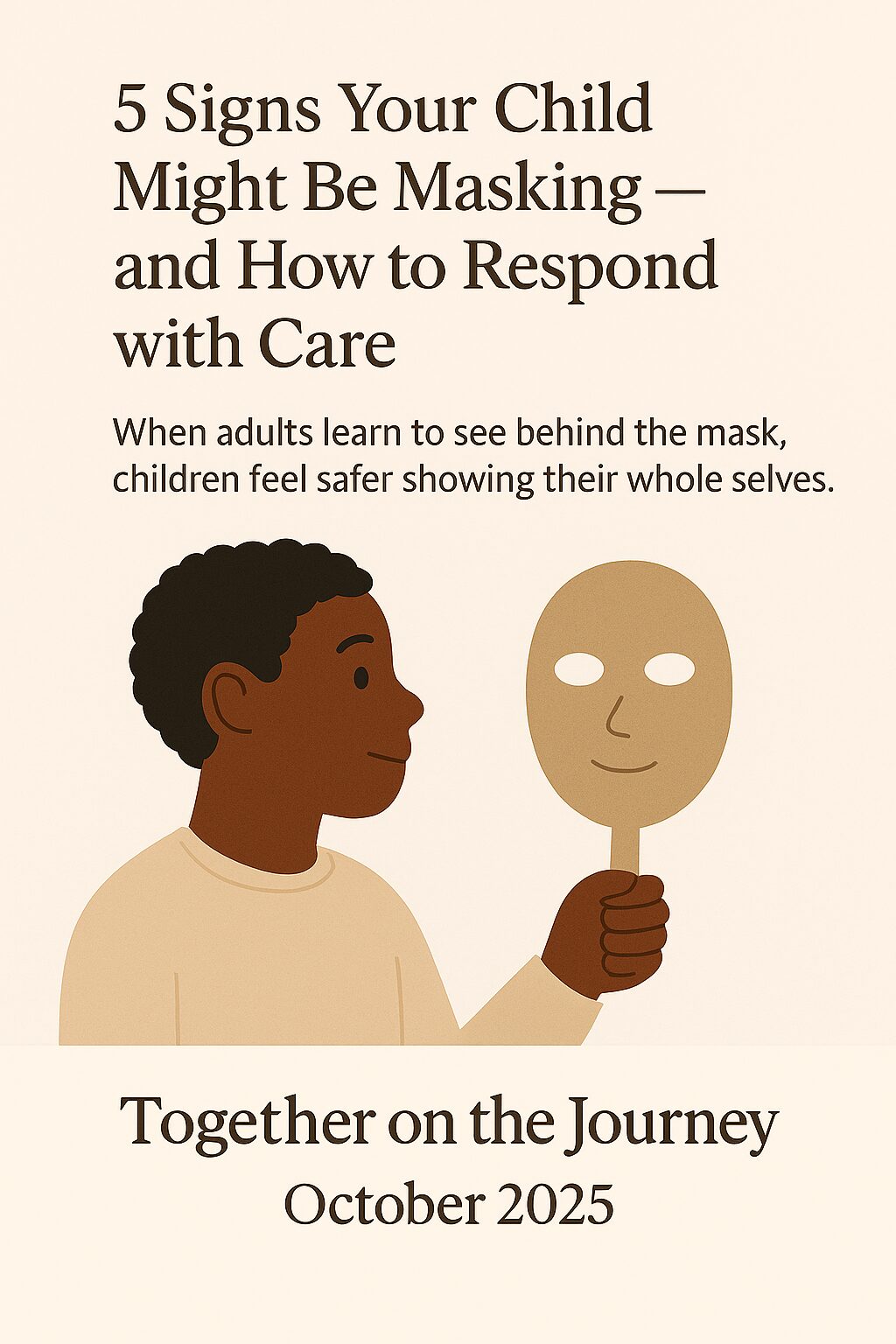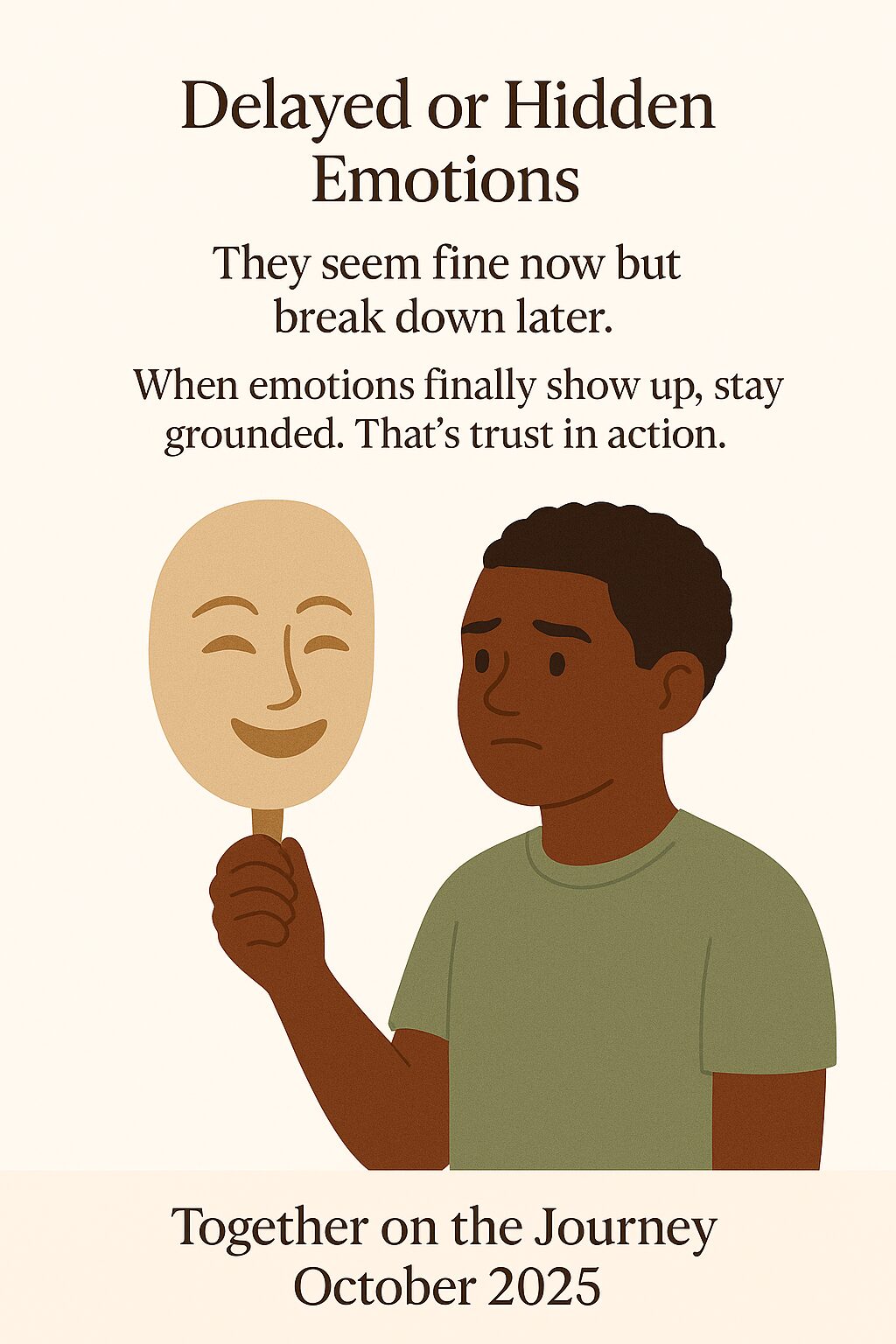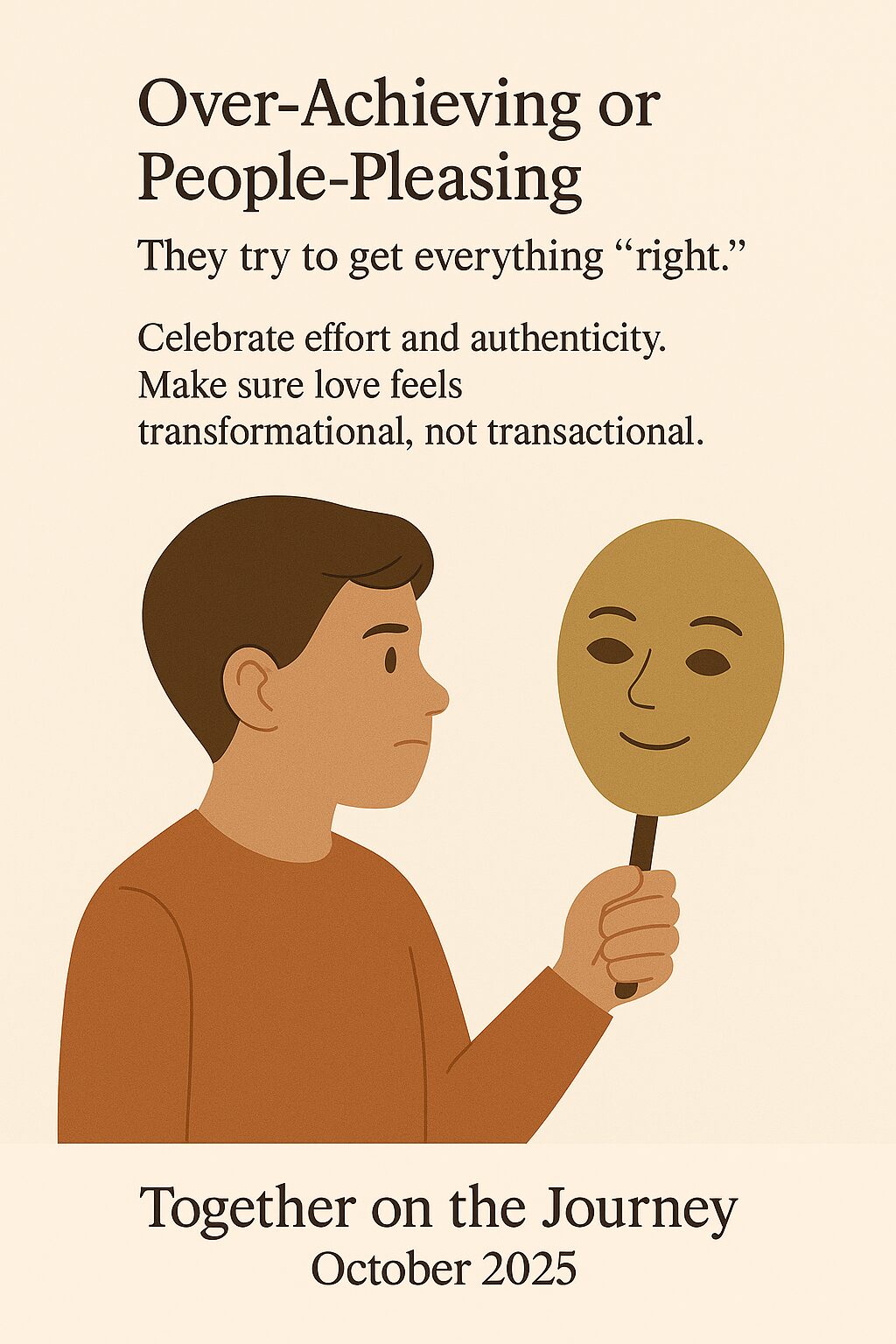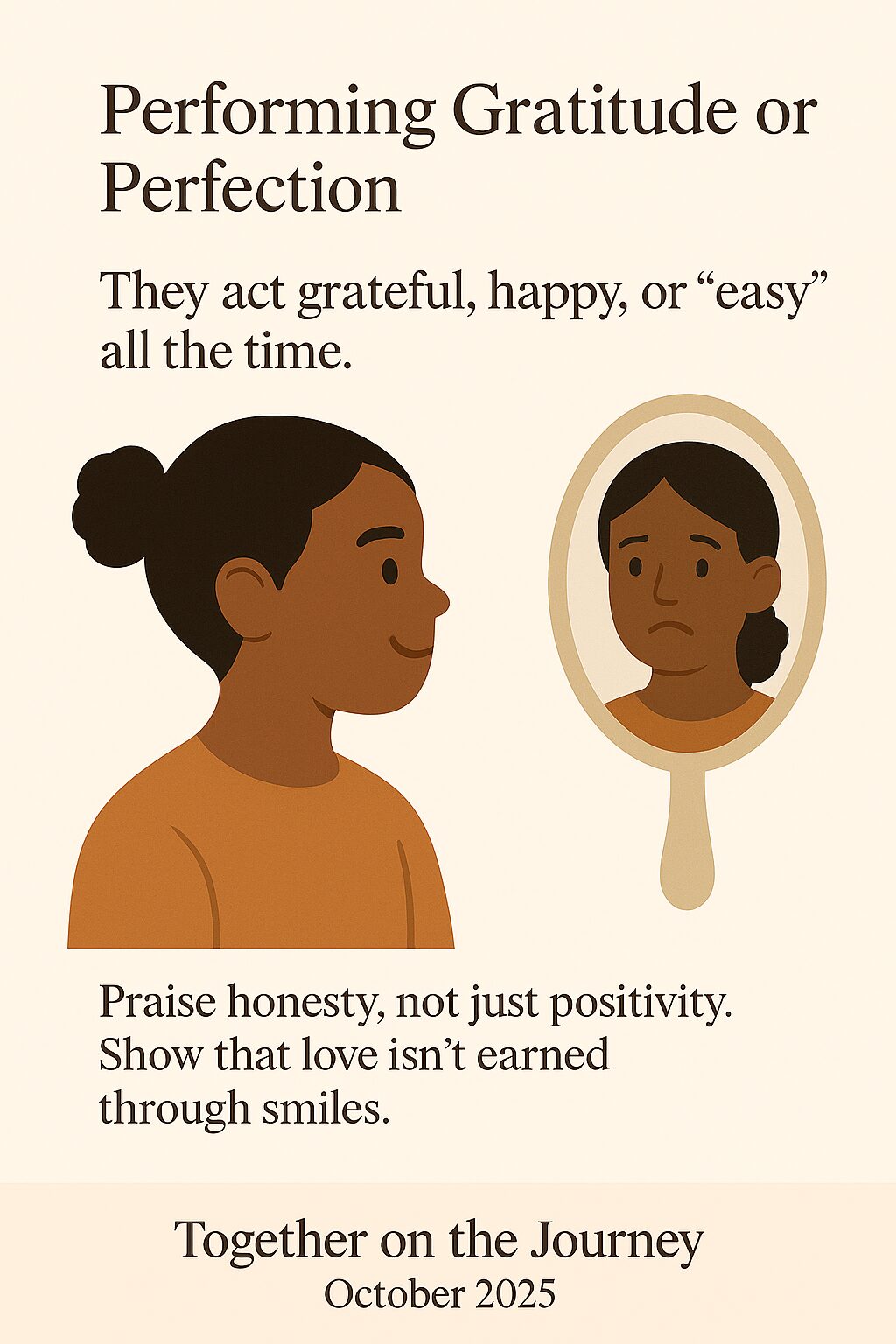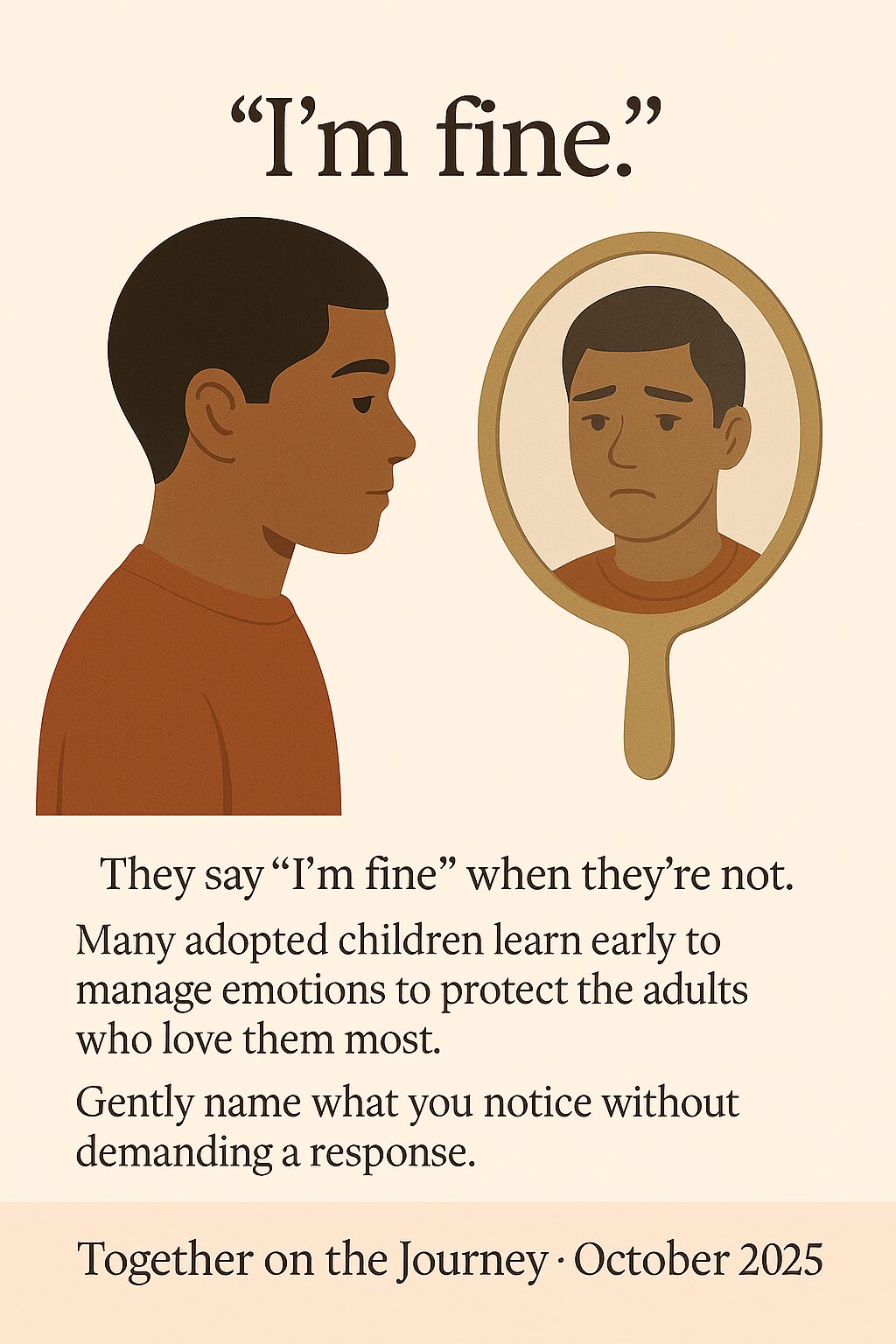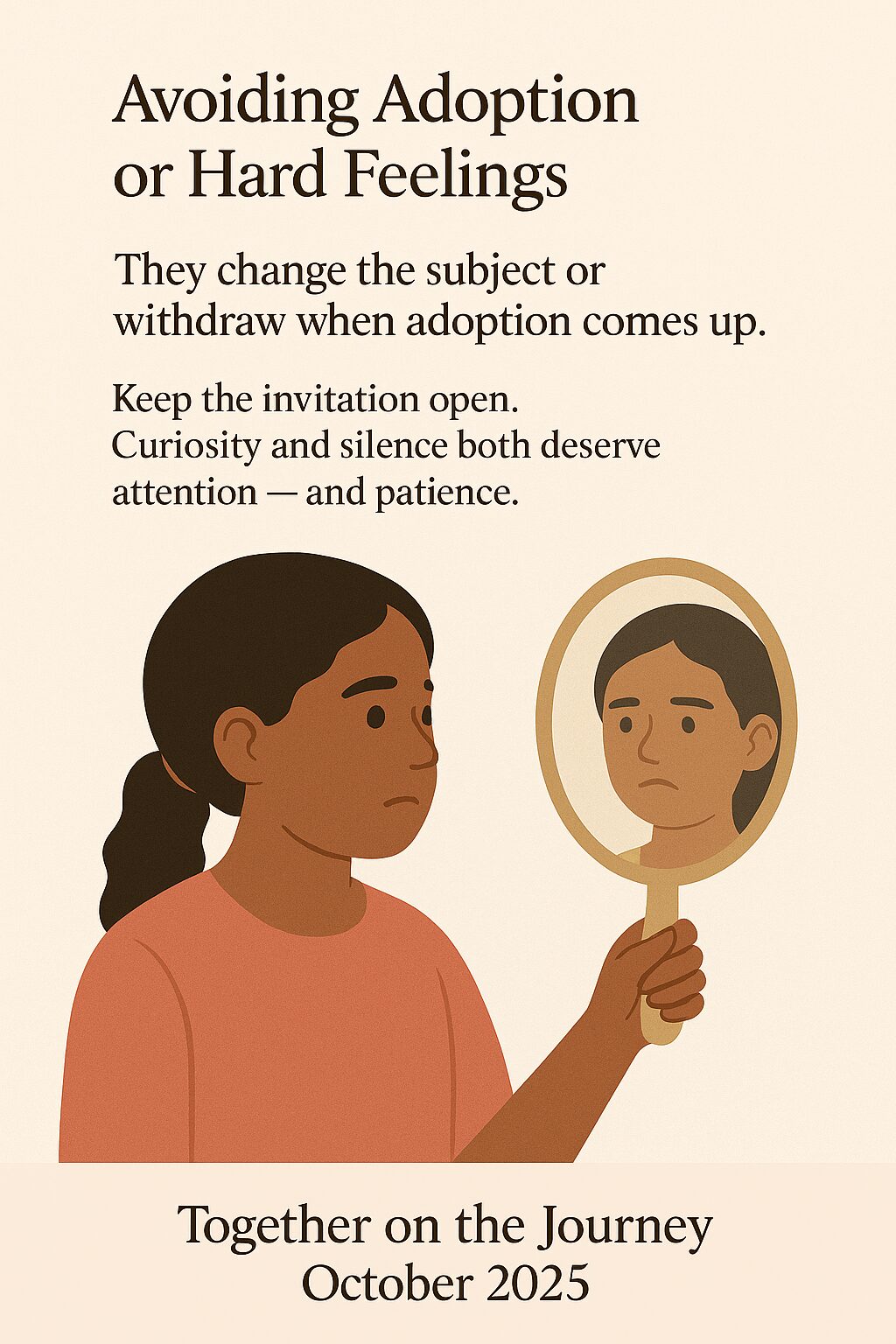When Hiding Becomes Habit
Throughout my life, I’ve become aware of how naturally I can mask — how easily I learned to protect parts of myself that felt confusing, painful, or “too much.”
As an adopted person, curiosity has always lived right next to fear: curiosity about who I am and where I come from, and fear about what might happen if I asked too many questions or revealed my true emotions of grief and loss.
Connections over the years with what I call the extended family of adoption and foster care — adopted persons, families of origin, adoptive families, folks who experienced foster care, and professionals — have shown me that the stories we’re given about adoption shape what we feel safe to express.
Masking, in that sense, isn’t about pretending; it’s about surviving. It’s about finding ways to belong in a world that may not yet be ready for our full truth.
More Than a Costume
Halloween is a time when masks and costumes take center stage — when it’s acceptable, even celebrated, to play with identity and transformation. But for me, and for many others connected to adoption, masking can be something we’ve practiced far beyond a single night.
We mask our longing for information.
We mask our fear of rejection.
We mask our curiosity about where we come from.
And sometimes, we even mask our pride in who we’ve become.
This month, as many play with costume and disguise, I’m looking more closely at what’s underneath — to honor the complexity, the curiosity, and the courage it takes to live unmasked as an adopted person.
When Curiosity Meets Culture
This season always brings up tension around cultural appropriation and appreciation — about who gets to try on an identity for fun, and who must hide theirs to feel safe. That dynamic feels especially sharp right now, in a climate where race, belonging, and representation are being debated and distorted in real time.
For families formed through transracial and intercountry adoption, October can be a month of reckoning. Costumes that make light of race, ethnicity, or immigration status — whether Blackface, ICE agents, or other caricatures — are not harmless. They are reminders that some people’s lived realities are still seen as entertainment, while others’ humanity is still questioned.
For adoptive parents raising Black and Brown children, this is a time to stay close, pay attention, and prepare. Children notice. They see what is celebrated and what is mocked. They feel when something is off, even if they don’t yet have the words for it.
These moments are opportunities for conversation — about safety, identity, respect, and the difference between imitation and understanding.
For me, unmasking is about giving myself permission to stay curious — even when it’s uncomfortable — and to listen deeply to the stories beneath the surface, in myself and in others. That same curiosity, when modeled by parents, can create the kind of family culture where children feel seen, protected, and proud of who they are — without having to hide behind any mask.
5 Signs Your Child Might Be Masking - and How to Respond with Care
Scroll through the image carousel on this page for more ideas on how to identify that your child is masking and techniques for responding with care.
- Delayed or Hidden Emotions
- Performing Gratitude or Perfection
- They Say "I'm Fine" When They Are Not
- Over-Achieving or People-Pleasing
- Avoiding Adoption or Hard Feelings
Reflections for Families
- What helps me and my child feel safe enough to unmask?
- How do we make space for each other to explore and show up as our whole selves?
- What stories have we inherited — and which ones are we ready to rewrite together?
- How can we model curiosity, empathy, and awareness during this season of masks and make-believe?
Looking Ahead to November
As we move toward National Adoption Awareness Month, let’s reflect on how we can shift from being talked about to being heard from. “Behind the Mask” reminds us that belonging begins with truth — and that every time we unmask, we make it a little easier for someone else to do the same. Listen to the October episode of Calendar Conversations for more. https://podcasts.apple.com/us/podcast/calendar-conversations-a-guide-for-adoptive-parents/id1728489802?i=1000731211477
This post is from our October 2025 newsletter. If you would like to get our newsletter in your inbox each month, as well as information about our annual TRJ Family Camp and our monthly Zoom call providing support for our transracial adoption parents, please subscribe.

